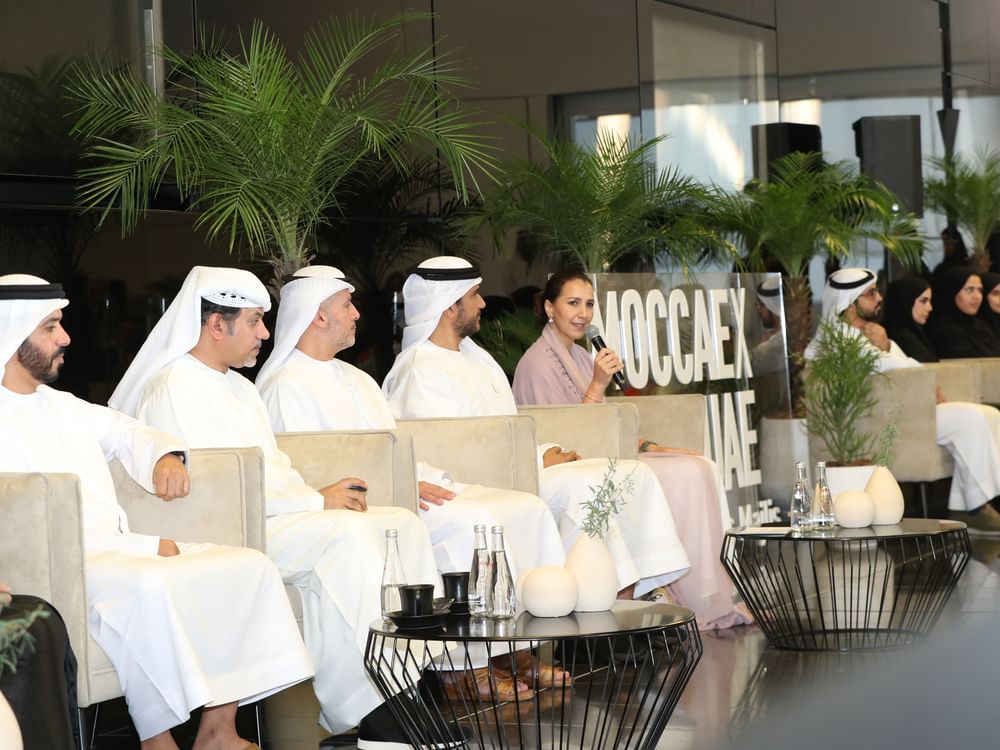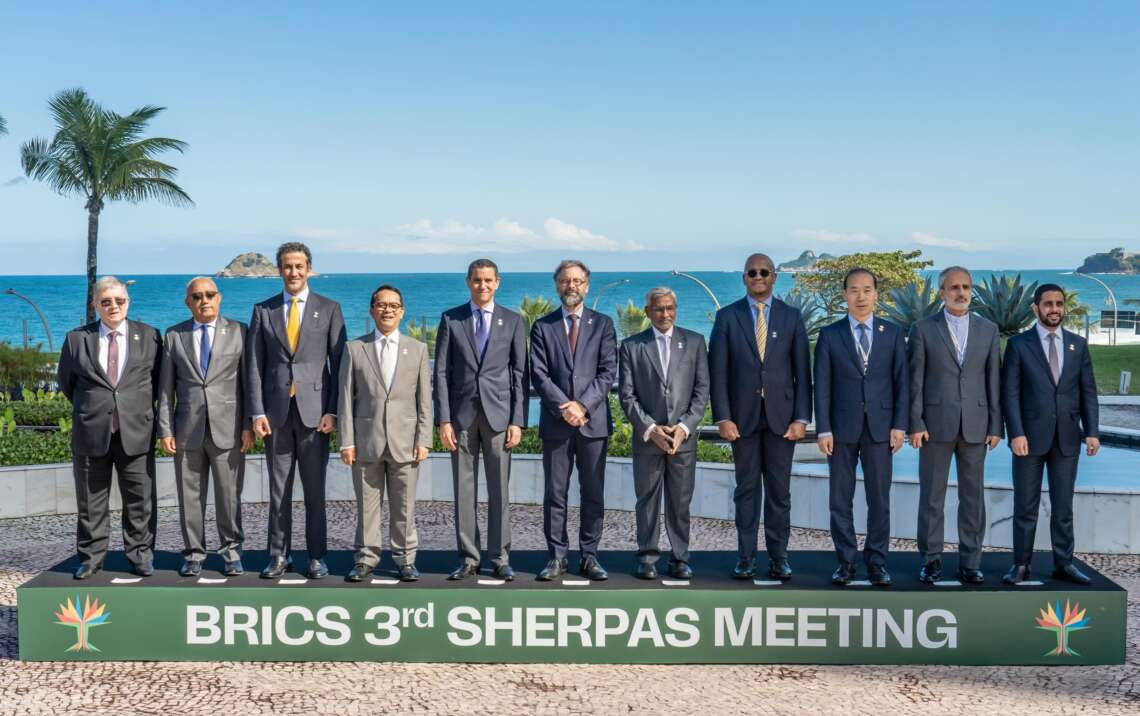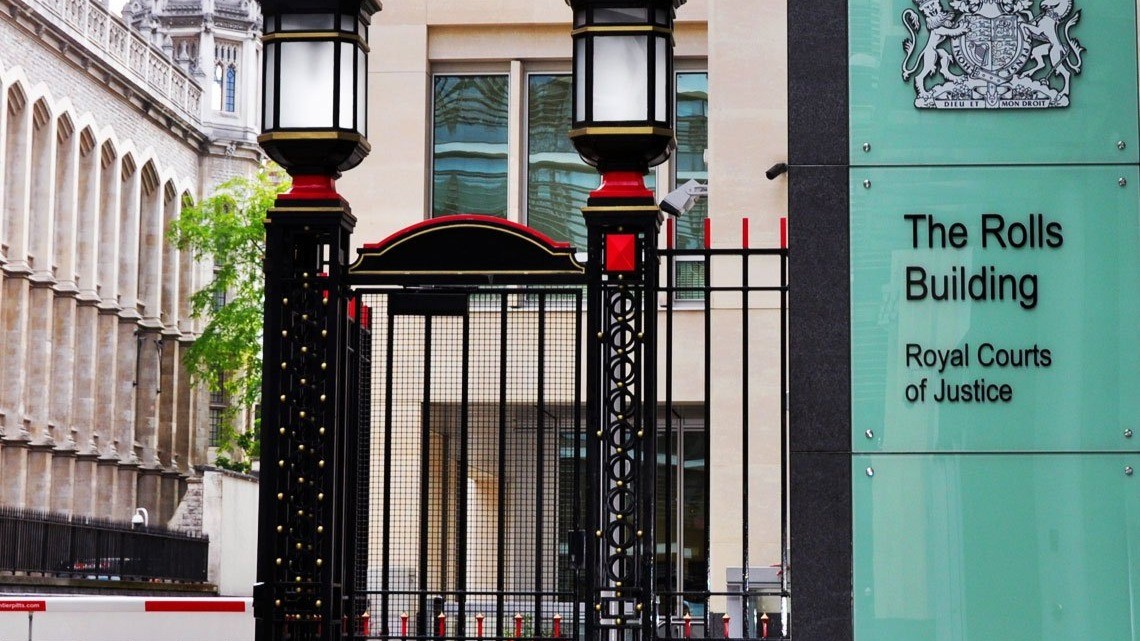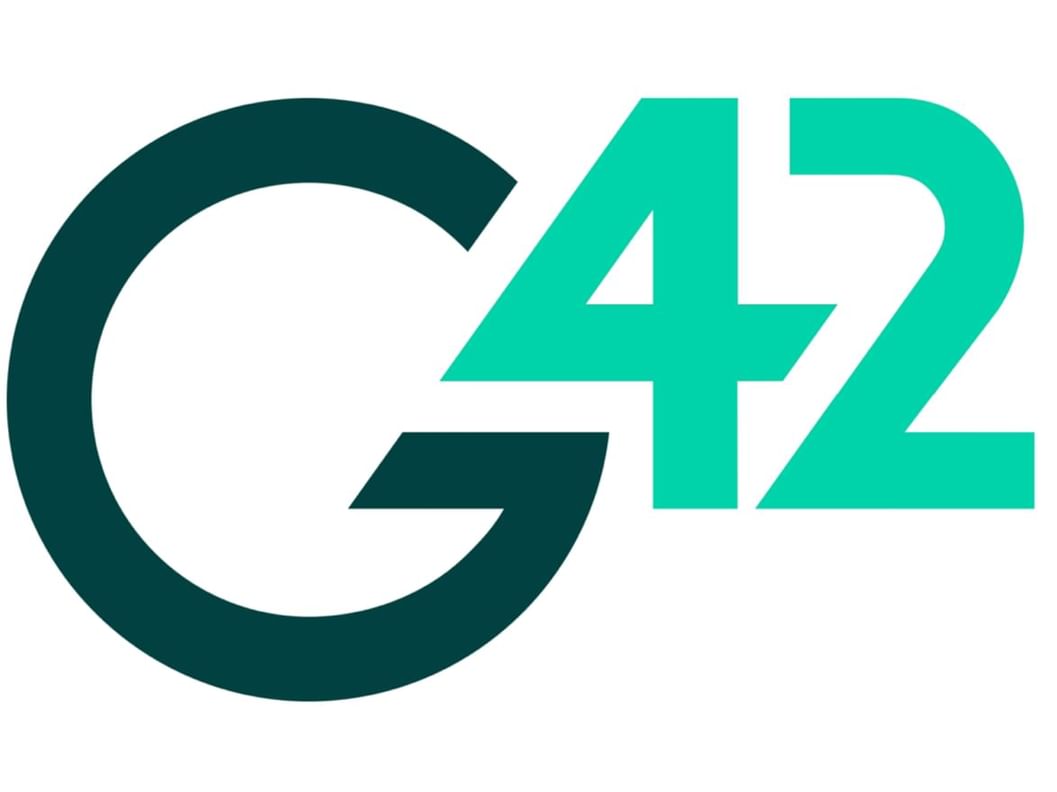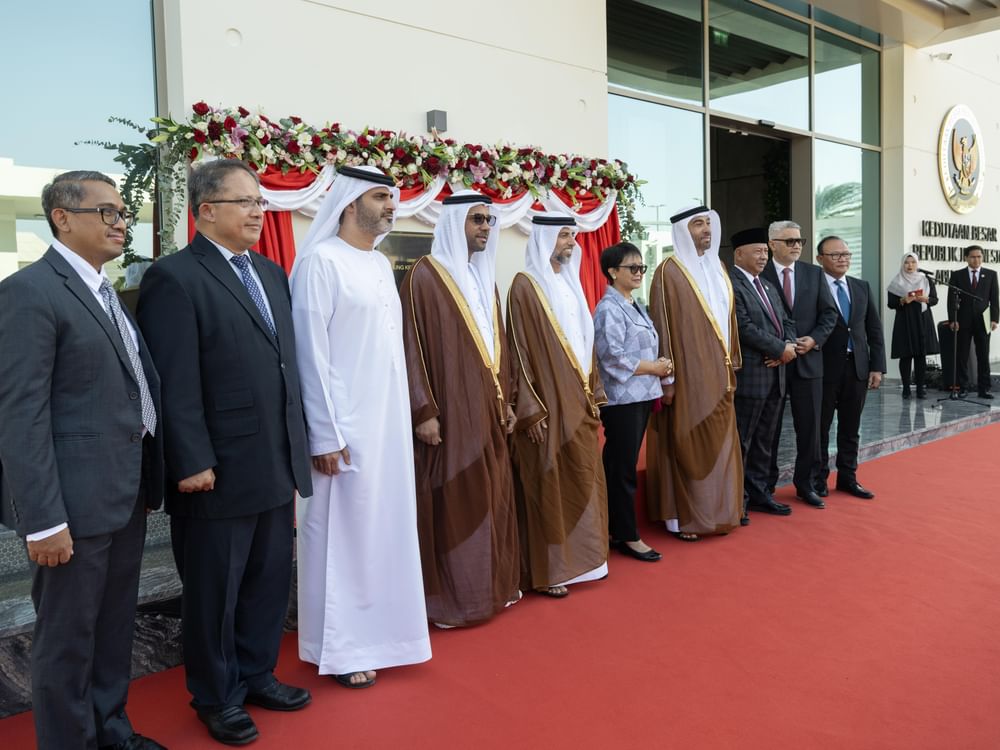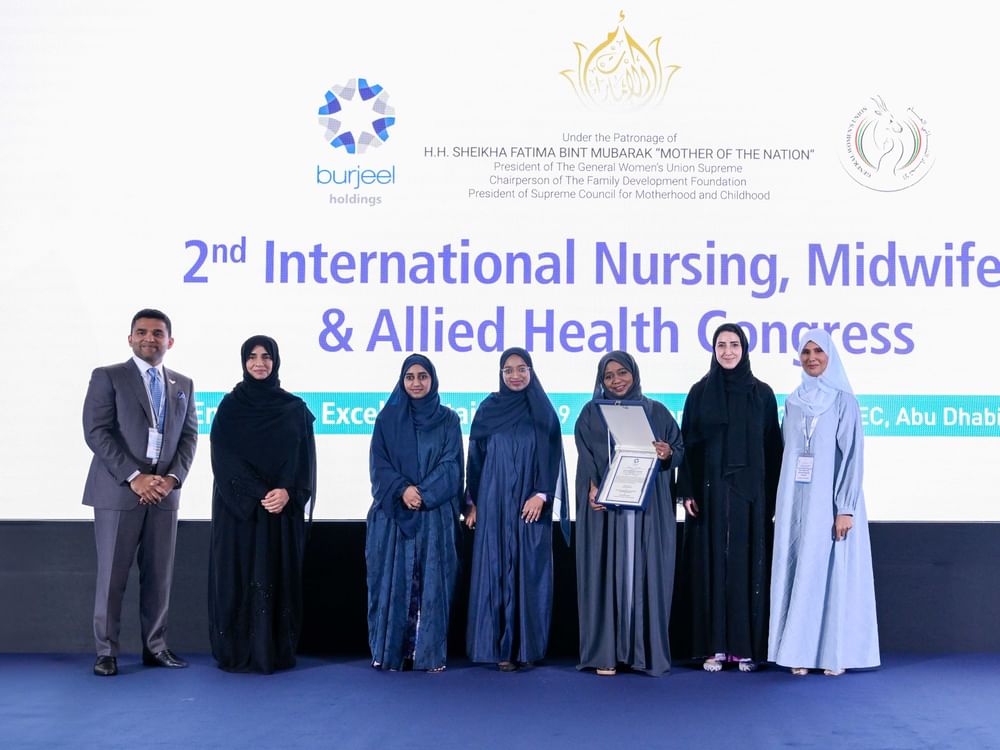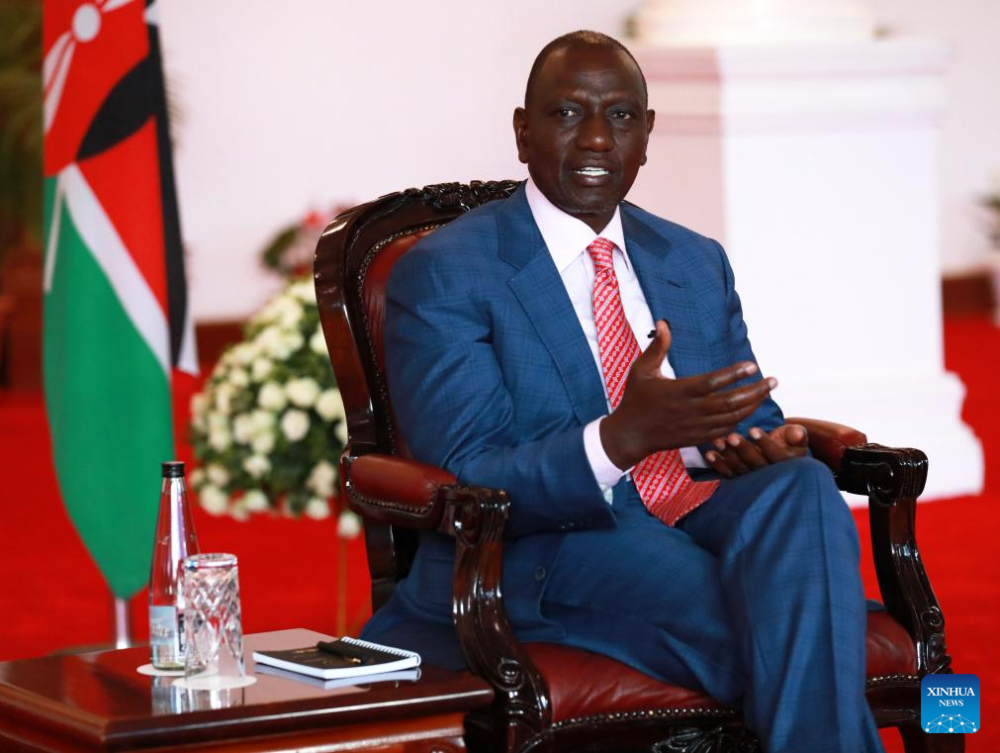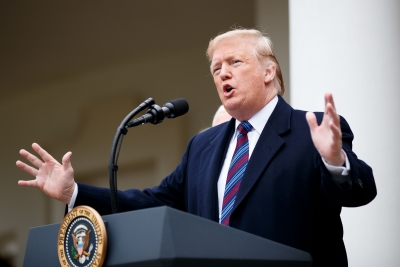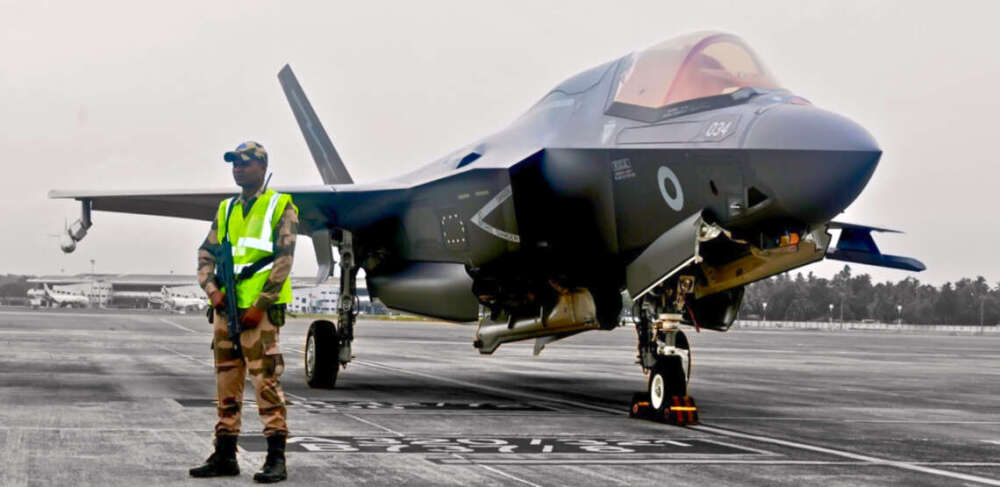The Abu Dhabi event focused its discussion on the accelerants and barriers to achieving Net Zero….reports Asian Lite News
The second in a series of eight national Majlis sessions being held in the run-up to COP28 was hosted today at The Louvre in Abu Dhabi. The Majlis brought together climate leaders, experts, and government representatives to discuss how Abu Dhabi and the wider UAE is rising to meet the goal of achieving Net Zero by 2050. The session was organised by the UAE Ministry of Climate Change and Environment.
The Majlis follows yesterday’s launch of the UAE’s Net Zero 2050 Strategy. The Strategy provides a tangible nationwide roadmap for achieving emission reduction targets and cements the UAE’s ambition to be one of nations at the forefront in making efforts to address climate change.
The Abu Dhabi event focused its discussion on the accelerants and barriers to achieving Net Zero. Attendees considered answers to questions about partnerships between the UAE government and the private sector; local initiatives to address the energy transition and how to amplify them; what legislative, policy or innovation barriers are limiting full advancement towards a sustainable future; and what collaborations between the group present could advance Net Zero by 2050 today, in the lead up to COP28 and into the future.
The Majlis was chaired by Mariam bint Mohammed Almheiri, UAE Minister of Climate Change and Environment, and Eng. Awaidha Murshed Al Marar, Chairman of the Abu Dhabi Department of Energy.
The Majlis was attended by Mohamed Ibrahim Al Hammadi, Managing Director and Chief Executive Officer of the Emirates Nuclear Energy Corporation’s (ENEC) and several leaders from the Ministry of Climate Change and Environment, namely H.E. Mohammed Saeed Al Nuaimi, Acting Undersecretary, Dr. Mohammed Salman Al Hammadi, Assistant Undersecretary for Biodiversity and Marine Life Sector, Dr. Nawal Al Hosany, Acting Assistant Undersecretary for the Green Development and Climate Change sector, and Shaikha Ahmed Salem Al Ali, Acting Assistant Undersecretary for the Regions Sector.
Almheiri asserted, “The UAE’s Net Zero 2050 Strategy is a major step forward in addressing climate issues. This comprehensive, new strategy aligns with the Paris Agreement, which calls on countries to address the global impacts of climate change and act to limit the rise in global temperature by 2030.
Almheiri outlined to the audience the Strategy and its main pillars, covering six sectors: energy, waste, construction, transportation, agriculture, and industry. The Strategy’s goals also include the establishment of more than 25 government programs that include several initiatives and projects to reduce carbon emissions. The Strategy will also contribute to sustainable economic development by creating more than 200,000 jobs and enhancing exports, which will increase gross domestic income by 3%.
The Minister went on to emphasise that the Strategy was the result of joint work at federal and local levels, and it was carried out in consultation with the private sector and society. To formalise the Strategy, more than 100 meetings were held, and more than 800 comments and opinions were discussed. Almheiri stressed that this collaborative approach will continue as the Strategy is implemented in various sectors across the UAE.
The attendees welcomed the new Strategy and discussed how all sectors and industries can embrace the sustainable agenda to drive economic growth and enhance climate action in the UAE. The climate leaders reflected on what has been achieved so far in the UAE’s journey towards Net Zero, including the UAE’s climate action and leadership as well as investments in sustainability projects domestically and internationally.
Industry and business are at the forefront of the nation’s efforts to mitigate climate change and create a sustainable future. It is through investments in innovation, advancements in technology and collective action that solutions are found. With COP28 now just 21 days away, the event explored current and future innovative climate action and outcomes in the UAE.
Her Excellency Mariam bint Mohammed Almheiri, UAE Minister of Climate Change and Environment concluded: “This Majlis is another step forward in achieving UAE’s Net Zero Strategy. The thoughts, ideas, and discussions I have heard today give me great hope that we are on the right path towards a Net Zero future. The time for action is now. With COP28 only 21 days away, we must come together and be ambitious in finding clear and actionable solutions to achieve Net Zero.”
Eng. Awaidha Murshed Al Marar, Chairman of the Abu Dhabi Department of Energy, praised the COP28 UAE Changemaker Majlis. The initiative that aims to bring together various sectors of the local community to promote climate change and sustainable growth discussions.
He said: “We thank our wise leadership for prioritising initiatives in the UAE to bolster positive change. We have to make the change that paves the way for the next generations.”
He added: We are following the late Sheikh Zayed bin Sultan Al Nahyan’s vision in consolidating the concept of sustainability and preserving the environment and natural resources, as his efforts led to the expansion of forests, which today cover extensive areas of the country.”
Regarding the country’s efforts to enhance climate action, Al Marar, explained: “The UAE is the first country in the MENA to announce the UAE Net Zero by 2050 strategic initiative, which is part of the ten principles under UAE’s Next 50, and it will provide new opportunities for sustainable and economic growth. The value of clean and renewable energy investments will reach AED 600 billion over the next three decades.”
Al Marar concluded his speech with a special message from The UN Secretary-General António Guterres, describing the UAE Net Zero by 2050 strategic initiative as a beacon of hope.
Mohamed Ibrahim Al Hammadi stressed the importance of the Barakah Nuclear Power Plant and its contribution to increasing the share of clean energy in the country’s energy mix, which will help achieve the Net Zero by 2050 goals. He said that once the Barakah plant is fully operated, they will contribute to reducing 22 million tons of emissions annually, which is equivalent to removing the emissions of 4.8 million cars. He said it is important for all members of society to know their carbon footprint arising from their consumption of energy, water and food because this is the right way to achieve climate and environmental goals.
Interactive discussions
During the Majlis, the attendees, including representatives of the private sector, scientific and academic bodies, and community representatives, reviewed the key experiences and solutions to advance the UAE’s efforts towards achieving Net Zero by 2050. Many strategies and ideas that support this trend were also reviewed, most notably the importance of employing regulations and laws to drive sustainable projects and ambitious climate and environmental ideas and facilitating their operation.
The discussions also reviewed the importance of scientific and academic research and its financing to contribute to the efforts of the government and the private sector in applying advanced technologies and evaluating them scientifically, especially with regard to removing and storing carbon and reducing the carbon footprint of many facilities.
The discussions emphasized the importance of a stronger will by the private sector to set larger goals to reduce their carbon footprint, and also enabling small and medium-sized companies to pursue sustainability goals. The participants also highlighted that workers and technicians must be trained on new sustainable systems. They also highlighted the need to focus on training Emirati youth to keep up with the job market and its requirements, as the UAE transitions to Net zero.
The meeting highlighted the importance of raising society’s awareness to modify its behaviour, rationalize consumption, and accept new systems that will be implemented, which will influence daily life, such as modern transportation systems, electricity and water consumption, stopping food waste, and other behaviours.


